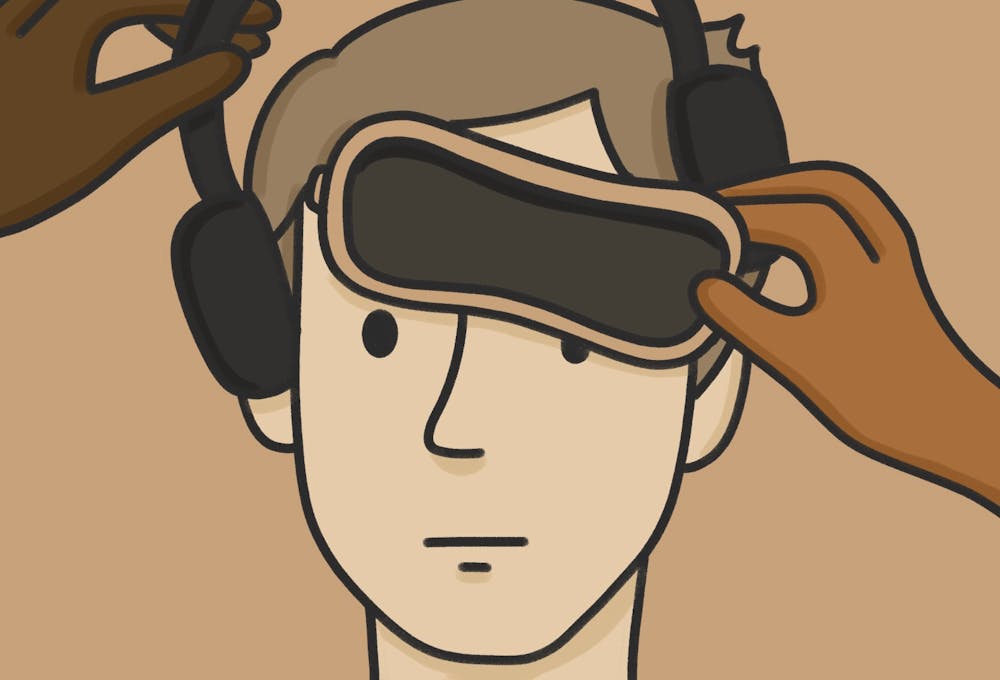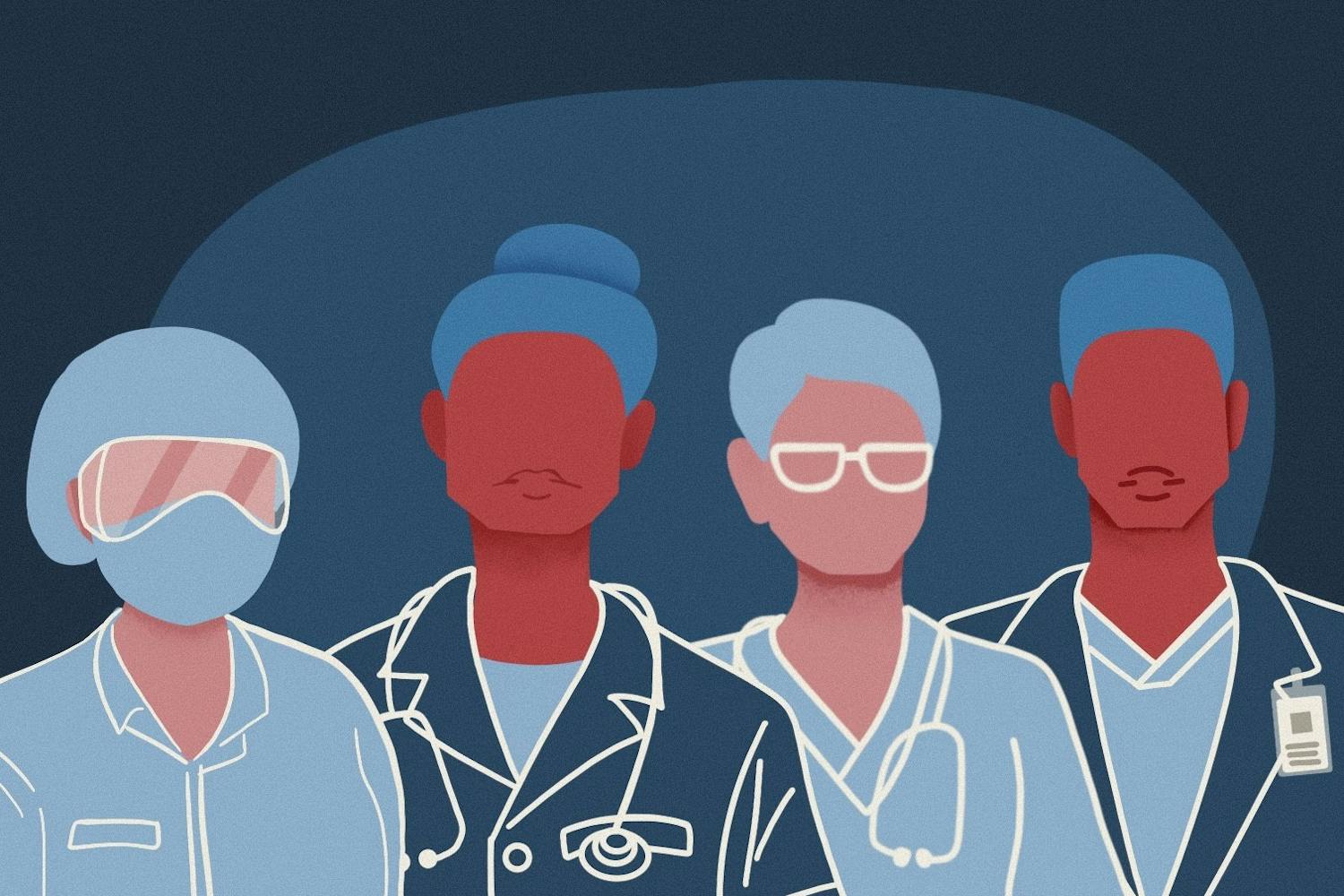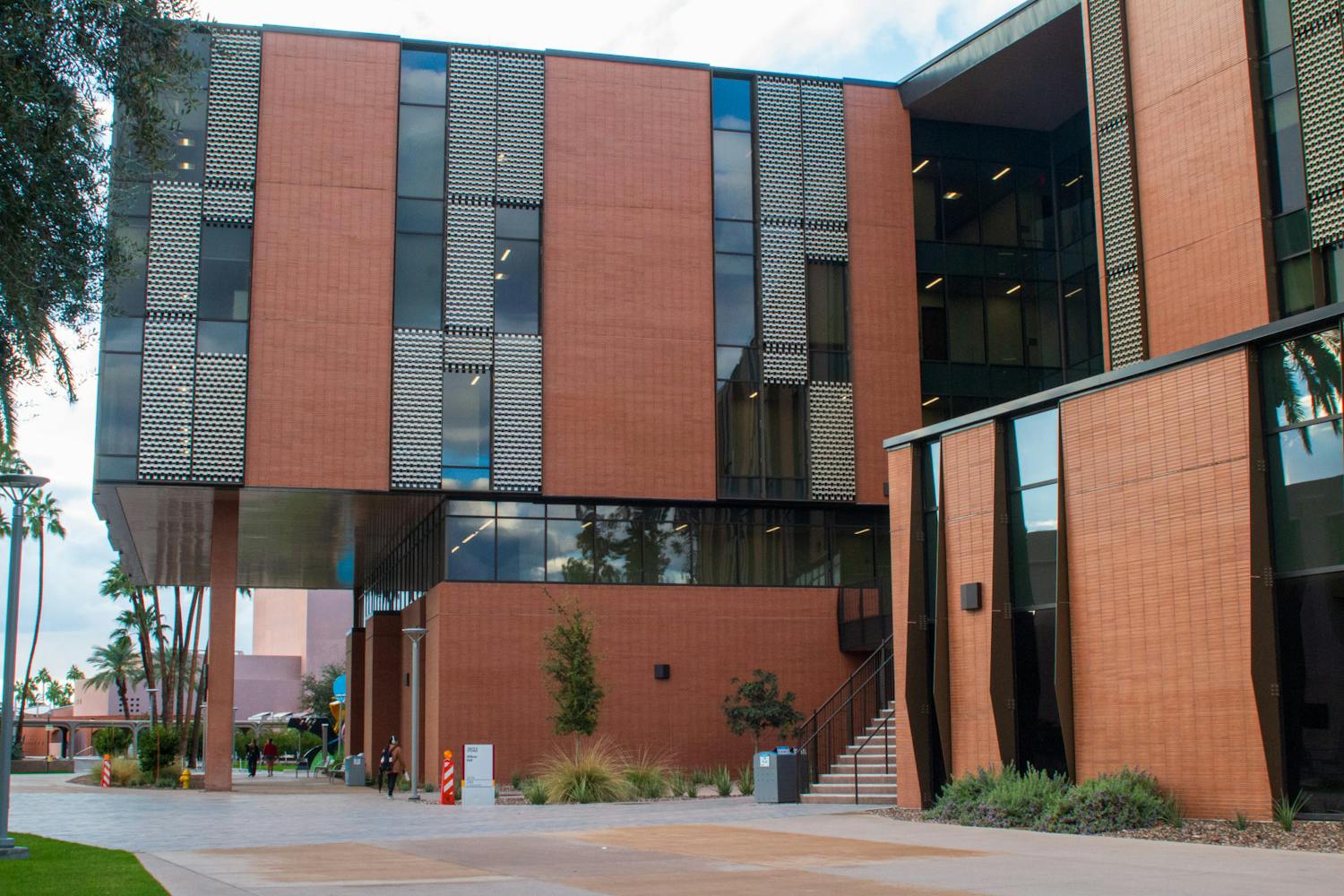Brothers Scott and Steve Leader walked to a train station after a Red Sox game in Boston in August 2015. The brothers found a 58-year-old man, homeless and sleeping outside of the train station. They proceeded to urinate on him, assault him and break his nose with a metal pole, leaving him with multiple other injuries.
According to the Boston Globe, Scott told police it was okay to beat this man because he was "Hispanic" and homeless. He was inspired by the then-GOP presidential candidate Donald Trump, allegedly telling police, "Donald Trump was right, all these illegals need to be deported."
Trump never apologized nor took responsibility for his role in this hate crime. He was elected the 45th President of the United States that November.
This instance of violence surfaced in my head when I saw the January 6 insurrection at the U.S. Capitol; the crowds of Trump supporters enraged by an election result that confirmed their fears of a changing America. I remembered that hate crime in 2015 and thought about how so many people warned about Trump's potential to incite violence.
I continued to ask myself the same question – why didn't people believe us? Then I realized that by "people," I meant white people. It was not Black and Brown people who were surprised at how that day unfolded. We were not shocked at the violence perpetrated by people that Trump called "very special" Americans.
When I flipped through the cable news outlets, I noted a lack of surprise on Don Lemon's face. His white counterparts were the ones who could not believe that an insurrection was unfolding live on television.
In order to understand why, we must revisit the past and understand how, from the very beginning, the events of January 6 were destined to happen.
When Trump first descended the golden escalator in the summer of 2015, so did the beginning of the next tumultuous five years. When Trump announced his bid for the presidency at the Trump Tower in New York City, his first words at the podium were, "Wow. Woah. That is some group of people. Thousands!" as he looked on to the crowd. However, as a report from the Guardian reflected, this was untrue. This was the first of many lies to come from Trump during his entrance into the political sphere which elevated his platform and sent the country into a spiral of misinformation.
It wouldn't be the last, and certainly not the most inflammatory. At the same rally, Trump said about Mexico, "They're sending people that have lots of problems, and they're bringing those problems with us. They're bringing drugs, they're bringing crime, they're rapists. And some, I assume, are good people," he said.
This comment sparked major controversy, catching the eyes of media corporations as coverage for the candidate grew.
Kermit Brown, an instructor at ASU's College of Integrative Sciences and the Arts, said he was surprised Trump had decided to run for president.
"(My colleagues and I) didn't really know what to expect, but from a personal perspective when I heard about him running, it didn't make sense to me because he's not a politician. The things that really alarmed me were that one, Trump is not an educated man, two, he's not a politician, and three, he had with him a track record of failed businesses," Brown reflected on those early days of the Trump campaign.
Brown explained that by substituting political experience with the ability to talk down his opponents, particularly his presidential predecessor Barack Obama, Trump was able to win over many voters.
"Fear is a powerful motivator. More powerful motivator than acceptance or love or any of that," Brown said. "I think he knew exactly what he was doing. He was like, 'Let me give the American public something to worry about and speculate on and watch how it divides us.'"
Capitalizing on this fear, the campaign continued to push out offensive, "politically incorrect" assertions with the goal of making headlines. Trump's viability for the Republican nomination was first seen as a joke, with journalists and political pundits laughing at the mere idea. But support for candidate Trump grew in white America as he voiced the frustrations of many who grew tired of the country changing at a pace where they felt their privilege threatened.
Targeted disenfranchised communities grew alarmed at the dangerous rhetoric, which was now given a major platform. Activists warned this would inspire violence as Trump continued making false accusations, stereotyping and vilifying Mexicans. The fear of violence became reality that August night in 2015, just three months after Trump's campaign kickoff.
BIPOC communities protested Trump’s election with marches all across the country and through social media, which would become a primary platform for people to share their dissent.
"FDT" is a song by Los Angeles rappers YG and Nipsey Hussle where they speak of their frustration with Trump's rhetoric. For people from South Central Los Angeles, it was an anthem to express their rage with the Trump administration.
"FDT" became a protest anthem, and many people from similar socio-economic backgrounds also adopted the song as a message to Trump. In voicing their anger against the Trump administration, many made connections between his rhetoric and the white supremacist groups who were further emboldened by it.
There is a long paper trail of BIPOC voices warning the country of the danger of Trump's tactics. But instead of acknowledging it, supporters of the president instead created an echo chamber void of any input from our communities.
Marginalized communities have been painted to be biased, unfair and whiny for their opinions while groups on the far-right grew bold and took more violent actions. BIPOC voices were trifled as they attempted to warn others of the threat the man in the White House posed to our communities.
BIPOC saw this coming for years. This great divide in understanding parallels the devaluing and silencing of voices on matters of race, class, inequality, experience and so much more from the communities who feel the pitfalls of society the most.
So, why were our voices not listened to?
"When we scream, not everybody hears us," answered Brown. “The unrest that we've been seeing, the protests that we've been seeing with all the movements — that's Black and Brown communities screaming. We tried to tell America that Black lives mattered when Rodney King was beaten, and for the last few decades, we've been screaming Black lives matter, but they haven't heard us."
"Fear is a powerful motivator. More powerful motivator than acceptance or love or any of that" — Kermit Brown
The years of lies, of conspiracy theories, of a president who weaponized people's fear all came to a massive demonstration of the power Trump has on white America; after a rally on the National Mall, the sitting president refused to acknowledge he had lost the 2020 election.
Trump was the motivator for the mob. Videos surfaced the following days depicting rioters demanding to be let in at President Trump's request. The court cases of those arrested after the insurrection all name Trump as an instigator, following his orders to storm the Capitol.
Though Trump bears the brunt of the responsibility, I believe that we should not excuse those who allowed him to wield this power so irresponsibly, that includes those who platformed these dangerous falsehoods.
Brown said media played a role in the rise of Trumpism, entertaining the administration's most extreme claims and finding the "middle ground" to defend some of the most violent actions it took.
"Media fans the flames," Brown said.
He believes the media worked to divide the American people, alluding to corporations like Fox News or CNN, making it a battle of red vs. blue, Republican vs. Democrat.
In this industry, in order to truly inform the public of what is going on in the world around us, we must first educate ourselves. Journalists and media pundits alike must commit to an anti-racist approach to the news, where we do not accept the status quo. I often reflect on the idea that news writing is the first draft of history books. If that is so, then how will history remember the Trump administration? Will it be remembered by the reporting of Fox News, where they glorified a man who staged an insurrection, who was supported by old and new guard white supremacists?
President Biden was confirmed by Congress the same night of the insurrection, yet, the majority of the GOP continued along with their baseless challenge of the results. President Biden was sworn in on Jan. 20, preaching his focus on bringing the country back together.
But in order to truly create unity in this country, leaders must work to acknowledge and reconcile with its past and present violence against BIPOC communities. That work starts with committing to an anti-racist perspective while reworking the widely racist institution that have historically harmed BIPOC communities.
I also posed the question to Brown of how to move forward, which he answered:
"Listen."




